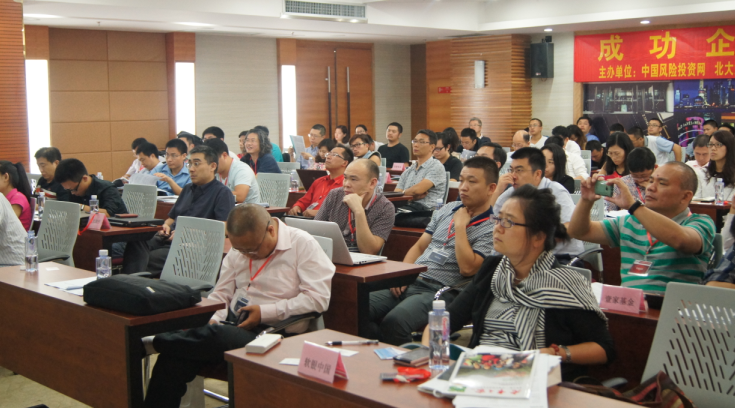为什么中国不会称霸科技
|
(Ray Kwong我的一个朋友)在福布斯中国发文题为“中国将统治科技的五个理由”,我实在是不能苟同,即便是部分。 Ray的文章分析过于草率也不大准确的。我下面列出Ray的五个理由(粗体显示),然后是我的分析。 1. 中国的领导层理解工程技术。在中国,包括中国国家主席胡锦涛在内的9个常委中有8个具有工程学位,一个具有地质学学位。而在美国,15个内阁成员,6个具 备法律学位。只有一个内阁成员有一个硬科学学位——能源部长朱棣文,他得了1997年诺贝尔物理学奖,有一个物理学博士学位。奥巴马总统和副总统拜登都是 法律学位。 那又如何?治国就是治国,没有证据可以表明,那些能够设计更好电视的人管理国家也比其他人管理国家更好。卡特(至少在布什之前就他),无可争议是自胡佛以来最差劲的美国总统,他(我认为)只是一个工程师。而美国内阁成员从什么时候开始在我们的技术走向起过决定性的影响?硅谷在技术方面一直引领世界,而其管理层的并非工程师组成,为什么不继续这样呢? 2. 中国的领导试图在创新超越美国,中国政治领导层以科技创新为领导目标,包括从超级计算机到纳米技术。这方面的一个亮点是中国在清洁能源技术方面的投资。 同样的,那又怎样?美国的领导也要创新超过中国,而且也以创新技术为领导目标。更实质性的说,这一分析错误在于假设了政府最终获得了创新,只是事实并非如此。
3. China's science and technical talent pool is vast. The technical labor pool in China is so large that Shanghai-based offshore outsourcing company Bleum Inc. can use an IQ test to screen applicants, with a cutoff score for new computer science graduates in China of 140. Less than 1% of the population has a score that high. Bleum has started hiring a U.S. workforce but sets an IQ score of just 125 as a screening threshold. One data point to note: In 2005, the U.S. awarded 137,500 engineering degrees, while China awarded 351,500, according to a workforce study last year. This is complete bullshit. Unscientific bullshit. This argument is so incredibly flawed I have trouble seeing straight enough to even know where to start, but here goes. China has four times the number of people as the United States so one would expect China to have four times the number of people with IQs 140 and over.
3. 中国的科学和技术人才储备是巨大的。在中国,技术劳动力资源是如此之大,总部位于上海的离岸外包公司博朗可以使用智商测试筛选应聘人员,是以140分作为 中国新的计算机科学毕业生的门槛分。不超过1%的人口达到这个分数。而博朗已开始雇用美国工人,但只有125分作为筛选门槛。要注意的一个数据:2005 年,美国工程学位授予是13.75万,而根据去年的劳动力研究,在中国则是351500。
4. The U.S. is failing at science and math education. A stark assessment of the U.S. failure in science and math education was made by U.S. Sen. Kay Bailey Hutchinson (R-Texas) at a Senate hearing in May, when she compared the performance of students in Texas to those in China. Wow, if a politician says it, it must be true! More seriously, if the United States is failing so bad in education, why does it seem like everyone in China with money is trying to figure out how to send their children to school in the United States? 4. 美国在科学和数学教育方面很失败。对美国在科学和数学教育方面的失败评估是由美国参议员凯贝利哈钦森在5月参议院听证会上作出的,她将德克萨斯州的学生跟中国学生的表现比较之后得出此结论。 哇,如果是政治家说的,那就一定是真的!而更严重的是,如果美国教育这么不好,为什么中国人喜欢用金钱挖空心思的把他们的孩子送来美国学校?(甚至是连微软某区前CEO都曾飘洋过海饥不择食的来拿野鸡大学文凭?——译者) 5. China is getting U.S. technology, all of it. In 2008, Sony Corp. closed what was identified as the last television manufacturing plant in the U.S., in Westmoreland, Pa. It shifted work to an assembly plant in Mexico, but the vast majority of TVs' electronics components are made in Asia. (Dell sources $25 billion annually alone in components from China, for example). This just about cinches it, I guess. If the United States is losing television manufacturing then it must be falling behind on the newest technology. I am NOT saying China is not moving forward with its technology and I am NOT guaranteeing China may not some day surpass the United States on this. But I am saying that Ray's arguments are no different than the arguments that were being made about Russia in the 1960s and about Japan in the 1980s and neither country is really anywhere these days on the technology map. 5. 中国不断获得美国的技术,在方方面面。 2008年,索尼公司关闭了宾夕法尼亚州威斯特摩兰的工厂,这工厂被称作是美国最后一个电视制造工厂。他们转移生产工作,在墨西哥组装,但电视的电子元件,绝大部分是在亚洲生产。 (比如,戴尔每年有250亿美元零部件来自中国)。如果说美国正在失去电视制造业就等于必定落后于最新技术,那么我猜这说法就是确是板上钉钉的事。 我不是说中国的技术没有前进,我也不能保证中国不会有一天超过美国。不过,我是说,Ray这样的观点,跟60年代和苏联的对比以及80年代跟日本的对比没什么两样,而那个时候在技术领域,而这两个国家并非什么都是。 In the end, if I had to choose a country that will be the leader in technology ten, twenty, thirty and fifty years from now I would be looking more for the country that welcomes diversity (and I use that word in the most purely capitalistic least mamby-pamby way possible) in its population/people and in its ideas over a country with a government that decrees innovation will start happening now. 最后,如果要选择一个在未来10年,20年,30年甚至50年内技术领先的国家,我会乐于选择这样的国家——在文化和人口结构以及理念上接受多元化 (我尽可能的用最纯粹资本主义最少矫饰的措辞),而不是这样的国家——它的政府现在才开始颁布创新的法令。 What me worry? 有啥好担心的?(布什名言) What do you think?你的想法呢? UPDATE: Just discovered an excellent post by GE Anderson over at ChinaBizGov, entitled, "America is rotten; China is awesome,also taking Ray to task. Anderson describes Ray's conclusions as "way overdrawn" and he too focuses on how Ray puts quantity over quality: 更新:刚刚发现一个在ChinaBizGov由GE Anderson 撰写的出色文章,题为“美国堕落,中国崛起?”,也是找Ray的茬,安德森描述Ray的结论为“透支方式”,而且显然他着重于Ray的数量高于质量的问题: This is very much an issue of quality vs quantity. I spent two years teaching at universities in China, and I continue to maintain close touch with the academic community there. While China is indeed turning out math and science whizzes up through high school level (the average middle schooler can plot the trajectory of a non-guided missile), nothing is being done to nurture the kind of creative and critical thinking that produces innovation. Furthermore, among the engineers earning degrees in China, very few of them have a passion for what they are learning. It doesn't bother me that a relative handful of students in the US are choosing the sciences as long as the vast majority of these students love what they're doing and eventually find their ways to Silicon Valley, Austin, TX or other similar clusters of talent. Again, this is where the innovation comes from. ”这更多的是一个质量与数量问题。我花了两年时间在中国大学任教,我还继续与那里的学术界保持密切联系。虽然中国确实在数学和科学通过高校提高了水平(平均水平的中学生都可以描绘出非制导导弹的轨迹),但却没有为创新而培养这种创造性和批判性思维。 此外,那些攻读工程学位的中国工程师,也没有多少人对自己的学习有热情。这并不妨碍我的想法:美国学生相对少数选择科学技术,但这些学生绝大多数是是因为热爱他们的选择,并且他们最终用自己的方法来到了硅谷,奥斯汀,德州或其他类似的人才济济的地方。这就是创新的来源。“ Anderson does throw Ray the proverbial bone, however, by noting that his article "may have been intended somewhat as hyperbole to shock our leaders into action." Yeah sure. Whatever. I guess I do hope that was Ray's intention all along as this same sort of off-the-cuff fear mongering arguably did help drive the United States to beat the Russians to the moon. 不过,安德森还给Ray个台阶,他文章指出,“有可能已经敲醒了我们的领导人是时候采取某些行动。” 是的,肯定。不管如何,我想我很希望这是Ray的意图,就像过去那种临时的恐惧散播最后无疑地帮助推动美国,在月球上(登月计划)击败俄罗斯人。 相关阅读:
|
|
相关阅读: | |





